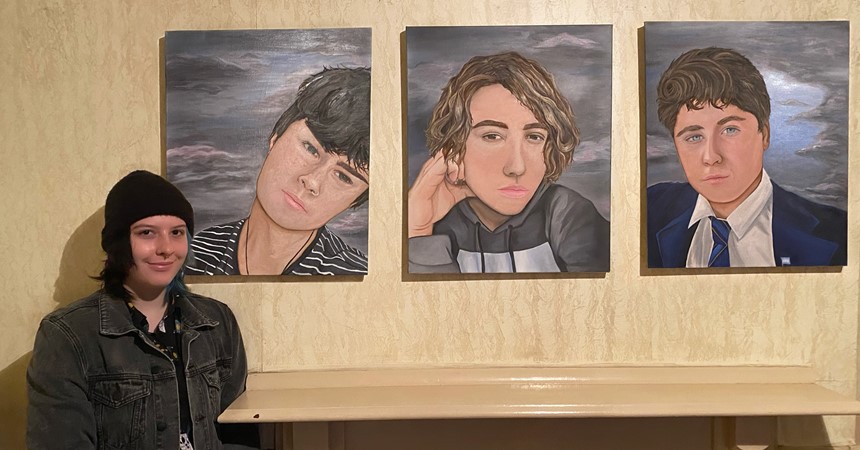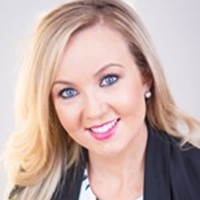However, when she gave birth to what physically appeared as a baby girl in 2002, there was no sense of loss. Maryanne was just glad to have a healthy, happy baby.
Fast forward 14 years, and in 2016, Maryanne’s daughter came to her explaining she felt she was a boy – assigned the wrong genitals at birth. Maryanne was supportive of her child’s feelings and they embarked on a journey of self-discovery.
Over the next year, her/she pronouns were dropped in favour of them/their, and once flowing locks were chopped off. The extended family and school were informed and supported their choice.
The following year, comfortable with how things were progressing, Maryanne’s child – then a young adult at 15 years of age –was requesting to be called Chayse and wear the boys’ school uniform.
The St Joseph’s College community at Lochinvar supported this move. Chayse’s circle of friends remained the same and staff at the school responded positively to any requests that were made. Chayse’s interests remain unaltered.
Ultimately, Chayse describes his transition as not having a huge impact on anyone else, and nor should it. It was a decision that allowed him to live his truth.
Chayse’s experience of wanting to transition is not unique.
Gender dysphoria is the term commonly used to describe the distress felt by people whose sense of being male or female differs from the gender they are assigned at birth. For some people, the difference between their gender identity and physical characteristics can cause significant and persistent emotional distress.
The Royal Children’s Hospital in Melbourne says about 1.2 per cent of Australian schoolchildren, or about 45,000 children, are thought to identify as transgender. Being transgender or gender diverse is regarded as part of the natural spectrum of human diversity.
In our school communities across the Diocese of Maitland-Newcastle, parents of children with gender dysphoria are asking for support. The Director of Catholic Schools in the Diocese, Gerard Mowbray, says it is important we offer assistance, advice and appropriate support when the need for their child to transition to his/her affirmed gender is identified.
“As Christians, we believe we are all made in the image and likeness of God, and thus we must also embrace the notion that our diversity of physical, psychological and spiritual conformations is also in God’s image,” he says.
“The observant adult, watching a child grow and develop, wonders at how each individual child is different in so many ways from any other child. Those God-created differences make each child unique. Often those differences are what we love most about each child.”
Chayse portrays a sense of maturity of someone far older than his years. He is compassionate and quietly confident. He says he agreed to be interviewed because he feels lucky to have the support of his friends, family, and school.
“When I first expressed my gender dysphoria to family and friends, I was worried about how they would react,” Chayse says. “Thankfully, I never experienced bullying or isolation from my family, at school, or in the community.
“My mother even said that from the time she was pregnant with me, she always felt that I was a boy – even though in my younger years there was nothing overtly
‘boyish’ about me. I have always felt accepted, no matter what.
“However, I know this isn’t the case for everyone. To those people I would say it is important to reach out to others going through the same experience – whether they be living in your community, or through online support groups. It makes a difference getting to speak to people who are experiencing the same feelings as you.”
Maryanne says her love for Chayse is unconditional.
“Chayse has, and will always have, all my love, support, and acceptance in pursuing whatever means necessary to let him live his most authentic life,” Maryanne says.
Chayse believes there are misnomers of which the community should be aware. He reinforces that gender variance is not about sex or sexuality, it is about identity.
Now that Chayse has completed school, he is seeking further medical support and advice regarding hormones and eventually, to formally transition.
Until then, the NSW Anti-Discrimination Act supports Chayse, and others like him. It states:
A person does not have to have had sex change surgery or hormone therapy to be considered transgender under the NSW Anti-Discrimination Act, or have a new birth certificate. All people who are counted as transgender must be treated fairly in the workplace. They should generally be allowed to use toilets and change rooms of their preferred gender and to wear dress or uniform of their preferred gender, unless it is not ‘reasonable with regard to all the circumstances’ to do so.
But bathrooms can still be problematical.
“Toilets are something that seem to interest most people,” Chayse says. “We’re not there to cause any trouble. We just need to use the bathroom like everyone else. It would make it easier for everyone if there were more unisex options available.”
Chayse comes across as a strong and assured young man – a son to instil pride in any parent.























































































